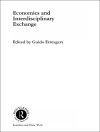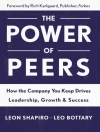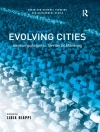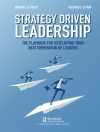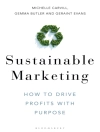Other Canon Economics: Essays in the Theory and History of Uneven Economic Development brings together key essays on development economics from one of the most prolific and important development economists and historians of economic policy today. Erik S Reinert argues through essays ranging from 1994 to 2020 that neo-classical economics damages developing countries: the theory of comparative advantage leaves out a number of factors which make economic activities qualitatively different as carriers of economic growth. Based on a long intellectual tradition – started by the Italian economists Giovanni Botero (1589) and Antonio Serra (1613) and later used in virtually all presently industrialised countries – Reinert shows that the country which exports increasing returns goods – e.g. high-end manufacture – has advantages over the country which exports diminishing returns goods – e.g. commodities. This has important implications for today’s development strategies that, Reinert argues, should be seen as industrial strategies.
Table of Content
16.The Economics of Reindeer Herding: Saami Entrepreneurship between Cyclical Sustainability and the Powers of State and Oligopolies; 17 European Integration, Innovations and Uneven Economic Growth: Challenges and Problems of EU 2005; 18 Institutionalism Ancient, Old and New: A Historical Perspective on Institutions and Uneven Development; 19 European Eastern Enlargement as Europe’s Attempted Economic Suicide? With Rainer Kattel; 20 The Economics of Failed, Failing and Fragile States: Productive Structure as the Missing Link With Yves Ekoué Amaïzo and Rainer Kattel; 21 Emulation vs. Comparative Advantage: Competing and Complementary Principles in the History of Economic Policy; 22 The Terrible Simplifers: Common Origins of Financial Crises and Persistent Poverty in Economic Theory and the New ‘1848 Moment’; 23 Industrial Restructuring and Innovation Policy in Central and Eastern Europe since 1990, With Rainer Kattel and Margit Suurna; 24 Capitalist Dynamics: A Technical Note; 25 Neo-Classical Economics: A Trail of Economic Destruction; 26 Modernizing Russia: Round III. Russia and the Other BRIC Countries: Forging Ahead, Catching Up or Falling Behind?, With Rainer Kattel; 27 Economics and the Public Sphere: The Rise of Esoteric Knowledge, Refeudalization, Crisis and Renewal; 28 Three Veblenian Contexts: Valdres, Norway and Europe; Filiations of Economics; and Economics for an Age of Crises; 29 Civilizing Capitalism: “Good” and “Bad” Greed from the Enlightenment to Thorstein Veblen (1857–1929); 30 Failed and Asymmetrical Integration: Eastern Europe and the Non-financial Origins of the European Crisis, With Rainer Kattel; 31 Renewables, Manufacturing and Green Growth: Energy Strategies Based on Capturing Increasing Returns, With John A. Mathews; 32 Financial Crises and Counter movements: Comparing the Times and Attitudes of Marriner Eccles (1930s) and Mario Draghi (2010s); 33 The Inequalities That Could Not Happen: What the Cold War Did to Economics; 34 Industrial Policy: A Long-term Perspective and Overview of Theoretical Arguments; Index
About the author
Erik S. Reinert is Professor of Technology Governance and Development Strategies at Tallinn University of Technology and also chairman of The Other Canon Foundation in Norway. He holds a BA from Hochschule St. Gallen, Switzerland, an MBA from Harvard University, and a Ph.D. in economics from Cornell University. Lecturing in five languages, Reinert’s work has taken him to more than 65 different countries. His book How Rich Countries Got Rich…and Why Poor Countries Stay Poor has been published in more than 20 languages.


